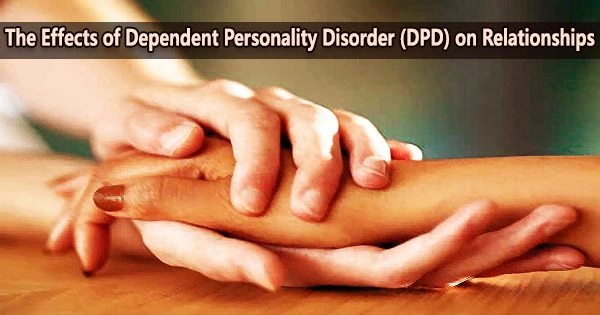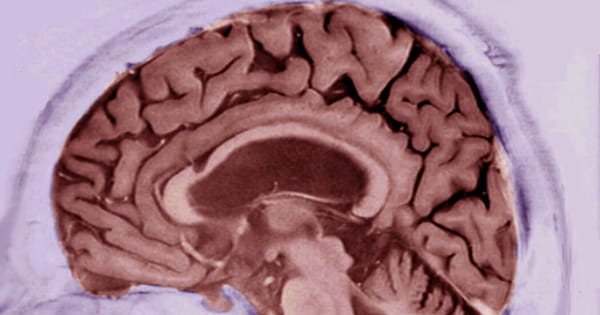Dependent Personality Disorder (DPD) is a mental health disorder characterized by a pervasive need to be taken care of, a fear of separation or abandonment, and a lack of self-confidence and self-reliance. DPD can be a dealbreaker in relationships of all types.
While estimates suggest that this disorder affects less than 1 percent of adults, it causes distress not only to the person diagnosed with the disorder but those in relationships with them as well (APA, 2013). People with DPD may have difficulty making decisions, initiating projects, or taking responsibility for their own lives, and they may rely excessively on others for emotional or practical support.
The signs of this disorder are more likely to appear in women, and they usually start to bother people when they are young adults. While young children and teenagers may depend on others for guidance and assistance, as they get older, they should become more independent. Unfortunately, those with DPD grow increasingly needy, submissive, and clingy. Those with the illness also experience an unhealthful anxiety of separation that lasts into adulthood.
DPD and Fearful-Avoidant Attachment Style
Regrettably, despite a number of plausible explanations being suggested, the precise cause of this disorder is still unknown. They include childhood surroundings and unpleasant events include serious illness as a child or sexual abuse.
However, attachment style has been noted as a strong predictor of DPD. The likelihood of developing DPD later in life is among the highest for kids who exhibit a frightened attachment style. Their neurotic and avoidant inclinations push them to avoid creating these relationships, despite their intense need to be taken care of, receive affection, and have close interactions.
Also, people who have a fearful-avoidant attachment style frequently have increased sexual activity, have trouble controlling their emotions, and are more likely to engage in violent behavior in close relationships.
Extremely overprotective parenting may also contribute to DPD. Narcissistic parents who use their children as “props” and demand that kids meet excessively demanding expectations could play a role in its development.
How It Feels to Live With DPD
Due to their overwhelming need for other people’s attention, care, and approval, those who display DPD symptoms struggle. They have such a strong need for affection that they will give in to partners’ demands for anything from the trivial to the major. Dress preferences, exercise levels, eating preferences, dietary restrictions, place of residence, and daily routines can all be left up to someone else.
Agonizingly reliant on others, crippled by self-doubt, lacking in confidence, and regularly putting themselves down, people suffer from low self-worth. Being alone is one of their major anxieties since they feel they can’t handle daily life’s routines and the choices and decisions that go along with them.
Career Disruption
Those with DPD have difficulty making decisions about their careers, just like those with avoidant personality disorder. It is challenging for them to hold jobs that call for initiative or leadership. Their dependence on outside guidance prevents them from moving up the career ladder, and they view decision-making-intensive roles as onerous and unaffordable.
Supervisors and co-workers of individuals with DPD may grow impatient with these employees as their indecision or constant need to be reassured that they are doing things the “right way” can drain others. A person might abandon a profession that requires any degree of independent thought or action if they are so afraid of making a mistake, acting incorrectly, or not achieving expectations.
Relationship Risks
Individuals with DPD struggle to function independently. Desperate attempts to connect may result in relationships where they are exploited or abused. While most of us have some level of anxiety of being abandoned, people with DPD are so overwhelmed by it that it dictates all they do.
At the beginning of a relationship, when couples tend to be invested in one another and present their ideal relationships, their neediness and clinginess may seem “normal.” Sadly, projections and illusions fade as relationships progress, and some partners find it difficult to put up with their partner’s intense neediness.
Individuals with DPD may be willing to suffer denigration and maltreatment to avoid being alone. Their greatest concern is that their relationships would end, but regrettably, their extreme dependency on others and desire for reassurance can overwhelm lovers and friends. Some people can consider this person’s requirements to be oppressive and look for ways to end the relationship. Yet, when they understand how dependent their buddy or partner has become, they may feel guilty and decide to back off.
Getting Help
Those who fit the criteria for a personality disorder diagnosis may not even be aware that they have a problem. Little differs in those who have a clinically significant number of DPD symptoms. The reasons they would seek counseling usually are related to depression, anxiety, or addiction. Living in a constant state of anxiety and terror takes a toll, and those who experience this may turn to drugs or alcohol as a way of self-medicating.
Revision of relationship expectations, the replacement of false ideas, and the development of more effective coping mechanisms are all possible benefits of cognitive behavioral therapy. Pessimism is typically related with DPD, therefore attention to removing self-defeating ideas may be another focus of treatment.
Assertiveness training may also be useful in building a stronger sense of self. If the patient is dedicated to making changes, treatment for the symptoms of DPD may be beneficial. Antidepressant medication may also be used to treat associated symptoms of depression and anxiety.
















